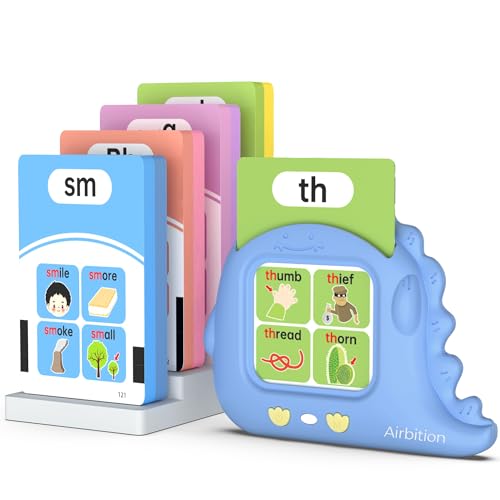Respectful listening is the first step to learning an Indigenous language because it shows genuine respect and attentiveness to the speaker’s words, tone, and cultural cues. By listening carefully, you acknowledge the language’s deep connection to community identity, history, and traditions. This approach helps build trust and encourages open sharing, creating a safe space for learning. If you keep exploring, you’ll discover even more about the significance of honoring this rich cultural heritage.
Key Takeaways
- Respectful listening demonstrates cultural sensitivity, honoring the language’s role in community identity and history.
- It fosters trust and openness, encouraging speakers to share their language more confidently.
- Attentive listening reveals deeper meanings and non-verbal cues essential for true understanding.
- It supports language preservation by showing genuine respect and commitment to cultural integrity.
- Respectful listening creates a safe space for learning, promoting mutual respect and ethical engagement.

Learning Indigenous languages goes beyond memorizing words; it requires approaching speakers with genuine respect and attentive listening. When you actively listen, you demonstrate cultural sensitivity, acknowledging the deep significance that language holds within a community’s identity and history. This respectful approach isn’t just polite—it’s essential to fostering trust and creating meaningful connections. Indigenous languages are often at risk of disappearing, and your willingness to listen carefully plays a fundamental role in supporting language preservation efforts. By engaging with speakers patiently and openly, you honor the cultural richness embedded in their language, showing that you value their traditions and stories as much as the words themselves.
Respectful listening involves more than hearing sounds; it requires you to be fully present and attentive to context, tone, and non-verbal cues. Indigenous languages often carry layers of meaning that cannot be captured through translation alone. When you listen with an open mind, you gain insights into the worldview and values embedded in the language. This approach helps prevent misunderstandings and misinterpretations, which can be common when learning unfamiliar languages. It also signals that you respect the community’s linguistic heritage, understanding that language is a fundamental part of their cultural identity. Your attentiveness encourages speakers to share their language more openly and confidently, creating a safe space for learning.
Listening with full presence reveals deeper meaning and fosters trust in Indigenous language learning.
Furthermore, practicing respectful listening acknowledges the historical and ongoing struggles Indigenous communities face regarding language loss and cultural erosion. It recognizes that language preservation isn’t just about vocabulary or grammar, but about respecting and maintaining a way of life. When you listen with humility, you show that you are committed to learning in a way that honors their sovereignty and cultural integrity. This mindset fosters mutual respect and promotes a more ethical, collaborative approach to language learning. It reminds you that every word spoken is part of a larger cultural story, one that deserves careful attention and appreciation. Additionally, understanding the importance of cultural sensitivity can deepen your engagement and foster more meaningful interactions with speakers.
In essence, respectful listening is the foundation of responsible language learning. It helps you develop cultural sensitivity and supports efforts to keep Indigenous languages alive. Your genuine attentiveness signals that you see the language as more than just a tool for communication; it’s a living expression of a community’s history, spirituality, and identity. By truly listening, you participate in a process that values the language’s preservation and honors the people who carry it forward. This approach isn’t just about acquiring words—it’s about respecting and embracing an important part of human diversity.

Phonics Talking Flash Cards for Toddlers 3-8, Airbition Learn to Read in 20 Stages, Digraphs CVC Blends Long Vowel Sounds Spelling Reading,Kindergarten First Second Grade Homeschool Educational Study
Phonics Games for Kids Ages 3-8: Phonetics teaching and mastering pronunciation are different from traditional card learning. This…
As an affiliate, we earn on qualifying purchases.
As an affiliate, we earn on qualifying purchases.
Frequently Asked Questions
How Can I Practice Respectful Listening Effectively?
To practice respectful listening effectively, you should approach conversations with active patience and an open-minded attitude. Focus on truly hearing what others are saying without interrupting or judging. Show your engagement through eye contact and gentle nods. Be willing to learn from different perspectives, even if they differ from your own. This exemplifies respect and fosters genuine understanding, creating a safe space for meaningful exchange and language learning.
What Are Common Mistakes to Avoid During Respectful Listening?
When practicing respectful listening, avoid common mistakes like interrupting or dismissing cultural sensitivities. You might also rush the process, forgetting that language patience is essential. Instead, focus on truly hearing the speaker without judgment, showing genuine interest and understanding. Stay open-minded, respect their cultural context, and give them space to share. By doing so, you foster trust and create a supportive environment for meaningful learning.
How Does Respectful Listening Differ From Other Learning Methods?
Respectful listening differs from other methods because it emphasizes cultural sensitivity and active engagement. Instead of just absorbing words, you focus on understanding the speaker’s context and respecting their traditions. This approach encourages you to listen attentively, ask thoughtful questions, and honor their perspective. Unlike rote memorization or passive learning, respectful listening fosters genuine connection and deeper comprehension, making it essential for truly learning and appreciating an Indigenous language.
Can Respectful Listening Help With Pronunciation and Fluency?
Ever wondered if respectful listening can boost your pronunciation and fluency? It absolutely can. By actively engaging in respectful listening, you sharpen your intonation practice and develop pronunciation awareness. Listening carefully to native speakers helps you pick up subtle sounds and speech patterns, making your own language skills more natural. So, yes, respectful listening isn’t just respectful—it’s a powerful tool for improving your speaking abilities and mastering the language.
How Do Cultural Differences Influence Respectful Listening Practices?
Cultural differences shape how you practice respectful listening, impacting your understanding of non-verbal cues and communication styles. You might encounter varied cultural norms around eye contact, silence, or speech volume, which influence your interactions. Language barriers can make it harder to interpret these cues accurately, so you need to remain patient and open-minded. By respecting these differences, you foster trust and create a safe space for genuine exchange.

17 Part of Speech Posters, PET Film Covered English Grammar Poster Language Learning Tool for Middle Classroom, School, Bulletin Board, Kid’s Room, Teacher Supplies, English Language Art Wall Decor
Early Education: It comes with 17 English grammar posters, providing a fun and accessible way to introduce children…
As an affiliate, we earn on qualifying purchases.
As an affiliate, we earn on qualifying purchases.
Conclusion
By practicing respectful listening, you honor the cultural and spiritual depth of indigenous languages, creating a foundation of trust and understanding. As you embrace this mindset, remember that even in the age of smartphones and instant messaging, genuine connection remains timeless—like a well-worn manuscript passed down through generations. When you listen with humility and patience, you not only learn a language but also become part of a larger story that transcends the boundaries of time.

Cultural Sensitivity Training: Developing the Basis for Effective Intercultural Communication
As an affiliate, we earn on qualifying purchases.
As an affiliate, we earn on qualifying purchases.

Indigenous (2014) (Region 2)
Indigenous (2014) (Region 2)
As an affiliate, we earn on qualifying purchases.
As an affiliate, we earn on qualifying purchases.









